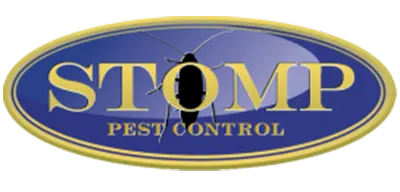Rat poop is so disgusting, it should come with a warning label that says “DIY or Die”! Seriously though, how would you know that brown smudge on the ground is rat waste?
The first thing to look for is rat hair. Rats usually shed hair around their living areas. This hair should be dark, coarse, and 1/8 inch long.
Rats also poo and urinate on items in your house, which is another way you know if you have rodents. They leave droppings on food, where it can then contaminate the food and make you ill. You can, however, get rid of the rat feces.
Take a look at this article for a step by step process of identifying rat poop, cleaning it, and its associated health risk.
How to Identify Rat Poop
The first thing to do about rat poop is to identify it. If you are not sure whether you are dealing with rat poop, put some on the palm of your hand, after wearing rubber gloves. Rat poop will slide effortlessly on your hand, while Rodent pellets will crumble. Rodent poops are grey, curvy, rough, grimy and will not slide on your hand.
Rat poop is usually visible on most surfaces of your home. Rats love most areas of your home including basements or any area with items to climb on or chew.
Pest control professionals are usually able to identify rat feces by the round shape of the droppings. They are also usually 12-13 millimeters wide, 10-12 millimeters long, and 4-8 millimeters thick.
Rat droppings are usually light brown to yellow, but this can vary depending on the animal’s diet. If you have a more difficult time identifying rat droppings, cut open a fresh dropping and if yellow foam or shiny silver foil is visible, you have the right rodent!
What Are the Health Risks of Rat Poop to You?
Fecal matter of rats and mice of any kind is known to contain dangerous bacteria and can cause infection, fever and headache. It is also one of the major causes of food borne illnesses.
Rat droppings can carry a variety of diseases, some health risks include Salmonella, Streptobacillus, and Immunovirosis. Some people who come in contact with rat poop contaminated surfaces may develop rat poisoning, which includes allergic reactions and breathing problems.
Rat droppings can also cause diseases like Leptospirosis, Hemorrhagic fever, and Lymphocytic Choriomeningitis.
Is Rat Poop Dangerous to Dogs?
Rat poop can be dangerous to dogs.
Rat feces can cause a disease in dogs commonly called “rat bite fever,” which is nothing more than typhus, a severe bacterial infection.
Lassa fever is another risk. The fever, which is contagious to humans, is caused by the droppings from house rats.
Should you Clean Rat Poop if You’re Pregnant?
You shouldn’t be in contact with rat feces if you’re pregnant. It is dangerous to you and your unborn child. If you suspect you’ve been exposed, contact your doctor at once.
Rat and mouse poop commonly carries a bacterium called leptospira. This can be passed to humans and animals when the poop is ingested. The bacterium is especially dangerous to pregnant people because it can cause miscarriages. It can also result in kidney and liver failure.
Does Rat Poop Smell?
Yes, rat poop smells but not as bad as its urine. Unfortunately, they often go together. Rat Poop is the most common of all rodent excretes. In combination with the urine, it leaves your home with an unpleasant smell.
What’s the Difference Between Rat Poop and Squirrel Poop?
Both woodland creatures, squirrels, and rats belong to the same family, but that is where the similarities end. Squirrel feces are similar to rat feces in terms of shape and size, but they are certainly not the same.
Rat feces are black while Squirrel feces are grey or are sometimes black.
Squirrel feces are often referred to as “mushroom” feces, due to their ‘toadstool’ like appearance. They are usually found in cluttered areas – they are most commonly found on rooftops, in attics, and in garages.
You can identify squirrel poop by the fact that it is more like a paste, as opposed to rat feces that will be more like a wet, slimy trail.
Rat poop can be found in all parts of your house and will seep through to your walls, and be seen on ceilings and beams, and clothes and all fabrics of furniture.
How to Tell if the Poop is Fresh
Fresh rat poop is dark and shiny. Old droppings are grey and dusty. Rats usually defecate shortly after they feed. The presence of fresh poop means you have an active infestation.
How to Safely Clean Rat Poop
Rat poop can be found pretty much anywhere in the home. Including the kitchen, living room, and bedrooms.
There are many methods of dealing with rat feces. The quickest and most effective way is to call a professional like Stomp Pest Control.
As messy as it may be, if you decide to do it on your own, you need to wear the following:
- Rubber gloves
- Dust mask or respirator
- Goggles or glasses
- Protective coveralls
You can use the rubber gloves and paper towels to clean up the area where you found the rat poop. You will need to use bleach, ammonia, or other disinfectants, diluted with water, to make sure you are getting rid of all the bacteria. If you have pets, be sure to give them a quick bath after you clean.
If this fails to disinfect an area, most likely a legal rodenticide will be needed to remove the problem.
Call us if you Need Help to Identify or Clean up Rat Poop
Stomp Pest Control is manned by knowledgeable and experienced staff who know just how irritating and dangerous rats and other pests can be. To schedule rat control in the Raleigh area, call us at (919) 231-3292.

